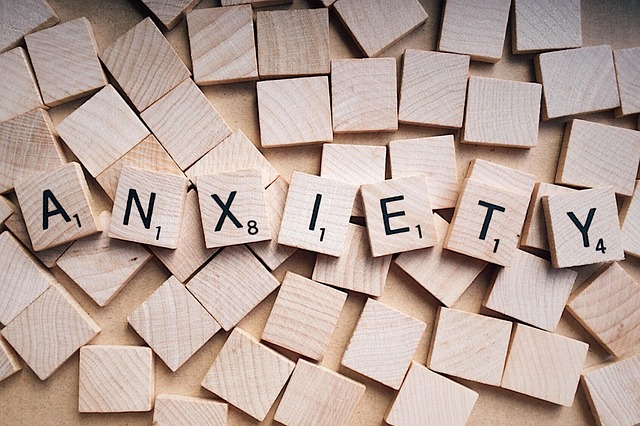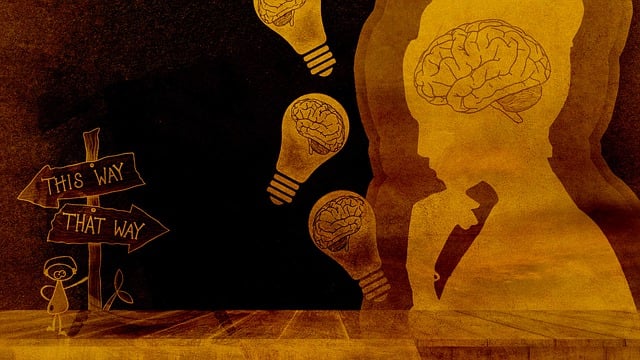Mental wellness is crucial for young children's development, but French-speaking communities face challenges in accessing culturally sensitive mental health support. Specialized therapists offer tailored therapy, using age-appropriate activities and safe spaces to foster emotional expression. Journaling is a powerful tool for these children, empowering them to explore emotions through self-expression, enhancing mental wellness, and providing insights during cultural competency training. An engaging French journaling exercise, incorporating drawing and storytelling, teaches healthy coping strategies to combat burnout and depression. With structured guidance, journaling becomes accessible for young children, aiding emotional liberation, self-awareness, and therapy progress tracking. It also celebrates achievements and boosts self-esteem, fostering resilience during crises and enhancing overall well-being.
“Unleash the transformative power of self-expression with our comprehensive guide to mental wellness journaling for young children. In today’s fast-paced world, nurturing emotional intelligence is paramount. We explore how journaling can serve as an effective therapy tool, helping kids process emotions and develop coping mechanisms. Specifically, we offer a unique French-speaking exercise designed to engage young minds. Learn a step-by-step approach to implement this practice and track progress, celebrating each child’s remarkable journey towards mental wellness.”
- Understanding Mental Wellness for Young Children
- The Power of Journaling as a Therapy Tool
- Creating an Engaging French-Speaking Journaling Exercise
- Implementing the Journaling Practice: Step-by-Step Guide
- Tracking Progress and Celebrating Success
Understanding Mental Wellness for Young Children

Mental wellness is a vital aspect of overall well-being, especially for young children who are still developing their emotional and cognitive abilities. For French-speaking communities, accessing appropriate mental health support can be a unique challenge, as therapy services in their native language may not always be readily available. This is where specialized therapists play a crucial role in providing therapy for young children, tailored to their cultural backgrounds and linguistic needs.
Understanding mental wellness involves recognizing that young children experience a range of emotions and behaviors that contribute to their overall emotional regulation. Cultural sensitivity in mental healthcare practice is essential when working with French-speaking families, as it ensures that the support provided is aligned with their beliefs, values, and unique family dynamics. Effective therapy for young children should also incorporate age-appropriate activities and techniques to foster open communication and build a safe space for them to express themselves. Additionally, risk management planning for mental health professionals is critical in ensuring the safety of both the client and the therapist, especially when working with vulnerable populations such as young children and their families.
The Power of Journaling as a Therapy Tool

Journaling is a powerful therapy tool that can significantly benefit young French-speaking children’s mental wellness. It encourages self-awareness exercises by providing a safe space for them to express their thoughts, feelings, and experiences. Through this introspective process, children gain valuable insights into their emotions and behaviors, fostering emotional regulation skills essential for their age group.
This practice can be particularly beneficial during Healthcare Provider Cultural Competency Training sessions. By journaling, young patients can articulate their unique perspectives, allowing healthcare professionals to better understand their needs and cultural backgrounds. This approach enhances the therapeutic relationship and ensures that interventions are tailored to meet each child’s individual requirements, promoting more effective emotional support.
Creating an Engaging French-Speaking Journaling Exercise

Créer un exercice de journalisation engageant en français peut être un outil puissant pour améliorer la santé mentale des jeunes francophones. En s’inspirant des techniques de thérapie utilisées avec les enfants, comme la narration et le dessin, on peut concevoir une expérience interactive et amusante. Par exemple, encourager les jeunes à illustrer leurs émotions à l’aide de dessins colorés ou de collages peut leur permettre d’exprimer ce qu’ils ressentent parfois de manière difficile à verbaliser.
En intégrant des thèmes pertinents comme la résolution de conflits ou la gestion du stress, cet exercice prend une dimension préventive face au burnout et à la dépression. En apprenant des stratégies saines pour faire face aux défis quotidiens, les enfants francophones peuvent développer un sentiment accru d’autonomie et de maîtrise de leur bien-être émotionnel. Ainsi, le journal devient un espace sécurisant où ils peuvent explorer leurs pensées et sentiments tout en découvrant des outils concrets pour naviguer dans la complexité de la vie.
Implementing the Journaling Practice: Step-by-Step Guide

Commencer à tenir un journal pour la santé mentale peut sembler intimidant au départ, mais avec une approche structurée, cette pratique devient accessible et bénéfique pour tous, y compris les jeunes enfants francophones. Voici un guide étape par étape pour intégrer cette activité dans votre routine quotidienne :
1. Choisissez le bon support : Que ce soit un carnet dédié ou une application de journal numérique, optez pour un outil qui vous convient. Pour les plus jeunes, un cahier coloré avec des illustrations peut rendre l’expérience plus attrayante.
2. Définissez un moment calme : Fixez un créneau horaire régulier où vous pouvez vous asseoir tranquillement et vous concentrer sur vos réflexions. Le soir, avant de dormir, est souvent un moment idéal pour explorer ses émotions et réfléchir à la journée écoulée.
3. Commencez par une question : Chaque jour, posez-vous une question guidante. Par exemple, “Qu’ai-je ressenti aujourd’hui ?” ou “Qu’est-ce qui m’a fait sourire ?”. Ces questions aident à orienter votre réflexion et facilitent l’expression de vos émotions.
4. Écrivez librement : Laissez vos pensées couler sur la page sans censure. N’hésitez pas à écrire des phrases incomplètes, des dessins ou même des mots-clés qui représentent vos états d’esprit. Cette étape est cruciale pour libérer les émotions et améliorer la conscience de soi.
5. Explorez vos sentiments : Au fur et à mesure que vous écrivez, prenez le temps d’analyser vos humeurs et vos pensées. Identifiez les schémas récurrents, les déclencheurs émotionnels et les moments où vous vous sentez le plus équilibré. Cette introspection est une forme puissante de thérapie pour les jeunes enfants francophones.
6. Pratiquez la compassion : Intégrez des exercices de compassion cultivation dans votre journal. Par exemple, notez trois choses pour lesquelles vous êtes reconnaissant chaque jour ou écrivez une lettre bienveillante à vous-même. Ces pratiques renforcent le mental health awareness et favorisent un sentiment de paix intérieure.
7. Mettez en place un rituel : Transformez cette activité en un véritable rituel personnel. Conservez votre journal dans un endroit spécial, créez une ambiance apaisante autour de vous, et faites de ce moment un temps sacré pour prendre soin de votre santé mentale.
Tracking Progress and Celebrating Success

Tracking progress is an integral part of any mental wellness journey, and journaling provides a powerful tool for this process. As children engage in therapy, whether it’s for anxiety, trauma, or self-esteem issues, regularly reviewing their thoughts and feelings allows them to identify patterns and triggers. This practice fosters self-awareness, enabling young clients to understand their progress over time. For instance, a French-speaking child who initially struggled with social interactions might document their growing confidence in various settings, marking significant milestones in their therapy for young children.
Journaling also becomes a celebration of successes, no matter how small. By acknowledging their achievements and positive changes, children can boost their self-esteem and motivation. It could be as simple as noting down the completion of a challenging task or a new coping mechanism learned during mental wellness coaching programs development. This practice helps them realize their strength and resilience, especially when faced with crises. Crisis intervention guidance through journaling provides an opportunity for reflection and reinforces the idea that setbacks are part of growth, leading to improved emotional intelligence and overall well-being.
Mental wellness journaling can be a powerful therapy tool for young children, especially when tailored to their linguistic needs. By creating engaging French-speaking exercises, we empower kids to express and understand their emotions, fostering a sense of agency over their mental health. Through step-by-step guidance and tracking progress, this practice becomes a transformative journey that celebrates success and promotes overall well-being for young minds navigating life’s challenges. For parents and caregivers, implementing these journaling exercises offers a simple yet effective way to support therapy for young children speaking French.










